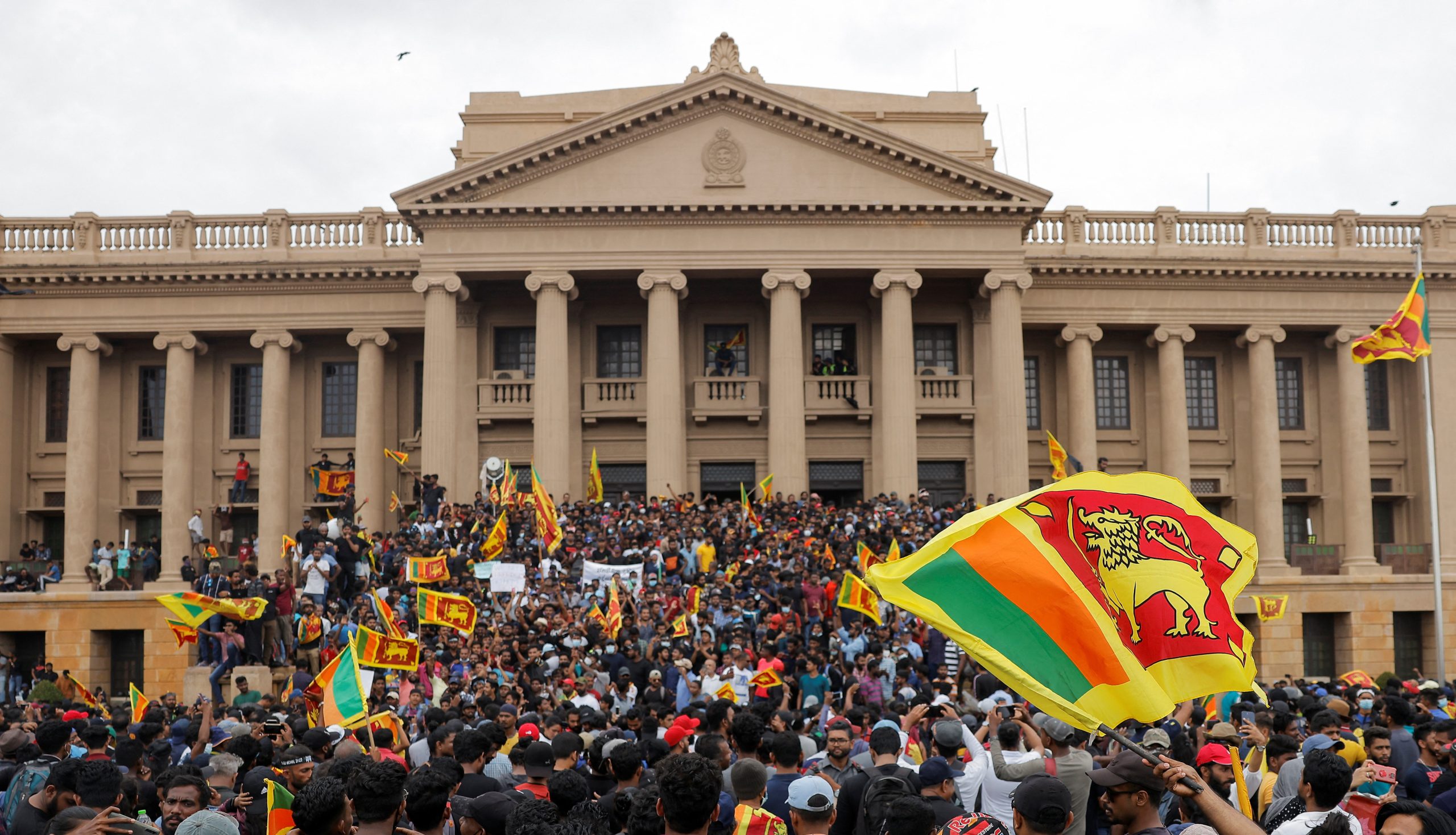
[elfsight_social_share_buttons id=”1″]
Sri Lankan President Gotabaya Rajapaksa fled the country early on Wednesday, leaving no one from the once-illustrious family in a position of power. The Rajapaksa dynasty dominated Sri Lankan politics until April, when street protests against fuel and food shortages began to take control of the nation.
The president vowed last month to stay on until his five-year term ended in 2024, despite the anger his tenure prompted among the people. Thousands of Sri Lankans stormed his official residence on Saturday, forcing him to go into hiding and agree to step down.
“One day this had to happen,” said Mallawaara Arachchi, a 73-year-old retired engineer, as he and other protestors wandered around the official residence of the prime minister last occupied by Rajapaksa’s elder brother, Mahinda.
“They have robbed everything from the people,” he said.
Mahinda resigned in May, thus ending his son Yoshith’s stint as chief of staff. His other son, Namal, elder brother Chamal, and younger brothers Basil and Shasheendra quit as ministers in April.
Immigration officials at the airport Tuesday stopped former finance minister Basil, who also holds U.S. citizenship, from fleeing the country.
The country of 22 million people is facing numerous economic crises. It has barely any dollars left to import fuel. It has defaulted on billions of dollars of foreign loans. Headline inflation hit 54.6% last month with more dire predictions of the future. Meanwhile, schools and offices remain shut down to conserve petrol and diesel.
It is the most debilitating political and economic crisis to hit the country since independence in 1948. That includes a brutal civil war in which Gotabaya Rajapaksa, as defence secretary, oversaw the crushing of Tamil Tiger insurgents in 2009.
Officials have placed much of the blame for the crisis on the COVID-19 pandemic that squeezed out the island’s tourism industry and dried up remittances from Sri Lankans overseas.
In June 2021, the nation announced a ban on chemical fertilisers and pesticides in an attempt to become the world’s first all-organic agricultural nation. By the fall of that year, farming output dropped by as much as 50%, leaving the nation with dire food shortages and skyrocketing prices for groceries. The nation abandoned the plan in November, but the damage to the agricultural market and the food supply had already been done.
Sri Lanka‘s parliament will elect a new president on July 20.
Prime Minister Ranil Wickremesinghe has also offered to resign, and if that happens, the parliamentary speaker will be the acting president for a few days as per the constitution before the election is concluded.
“Sri Lanka is in uncharted territory, we have never seen this level of volatility,” said Bhavani Fonseka, senior researcher at Colombo-based think tank Centre for Policy Alternatives. “Unless both the president and the prime minister resign we are looking at prolonged instability. What we have seen so far will be nothing compared to what could happen.”
Copyright 2022 Thomson/Reuters. Additions and edits by Jacob Fuller, FISM News.
